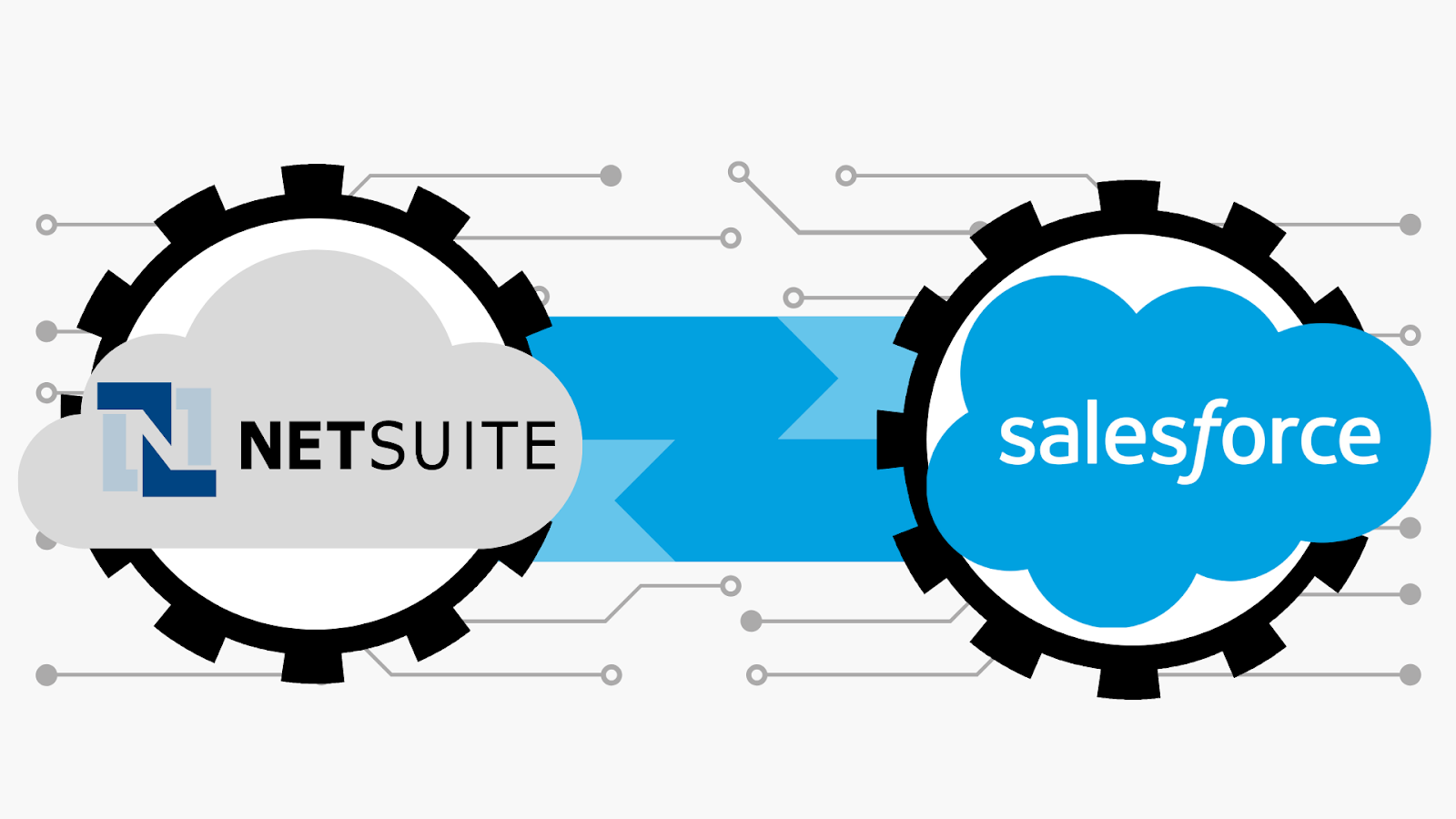NetSuite is the #1 Cloud ERP. In 2022, NetSuite turned into a forerunner in the Gartner Sorcery Quadrant for Cloud ERP for Administration Driven Venture. As you would recall from our past articles, Salesforce is #1 Cloud CRM. As pioneers in their fields, a large number of organizations apply to Salesforce and NetSuite. North of 40,000 associations across the globe use NetSuite ERP. Salesforce, thus, is utilized by more than 150,000 organizations across each significant vertical. In any case, the two monsters aren’t associated out of the crate. Anyway, how to associate Salesforce and NetSuite and benefit from such joining? Follow the article to get significant hints.
What is ERP and CRM?

We should begin all along and sort out the contractions.
ERP represents Endeavor Asset Arranging. ERP frameworks have been made to help organizations with dealing with their day to day work: monetary administration, HR, production network the board, bookkeeping – practically all cycles to run an organization easily and remain coordinated. It resembles a program where associations monitor all that they do. ERP framework solidifies venture information and cycles. Along these lines, organizations can accumulate separate offices and further develop work processes.
CRM alludes to Client Relationship The executives. CRM frameworks assist organizations with being better at dealing with their clients (or leads – possible clients) and building great connections. CRM gathers all that is had some significant awareness of clients and leads: the last collaboration date, what clients purchased, and why. CRM resembles a computerized partner that remembers everything significant about clients and leads.
By and large, CRM is situated on the clients, while ERP is arranged on organization assets. Subsequent to coordinating the two frameworks, organizations can offer types of assistance quicker and make them more customized. Organizations can keep away from errors among deals and stock, lessen manual information section, increment the exactness of statements, and that’s only the tip of the iceberg.
What is NetSuite?

NetSuite is a cloud-based Undertaking Asset Arranging (ERP) programming stage that gives a great many devices and functionalities to assist organizations with dealing with their different exercises.
Carrying out NetSuite ERP gives many elements and abilities, for example, bookkeeping, monetary administration, stock control, request handling, and then some. NetSuite offers strong revealing and examination devices, enabling clients to make reports and dashboards that convey constant bits of knowledge into their business exercises.
NetSuite can develop with your business. As your organization grows, you can add new modules or elements to adjust to your evolving needs. A versatile arrangement can uphold both little and enormous ventures.
Does NetSuite coordinate with Salesforce?
Indeed, NetSuite can be adjusted with Salesforce, and numerous organizations find this combination exceptionally gainful. This incorporation takes into consideration the consistent information stream among CRM and ERP frameworks. Such incorporation can be a unique advantage, particularly on the off chance that the business depends on the two frameworks for overseeing various parts of business tasks.
Why incorporate Salesforce with NetSuite

For the most part, organizations incorporate these two strong advances to work with information move between them. Be that as it may, it’s not all, and the rundown of advantages organizations get is significantly longer. A couple of them are the accompanying:
360-Degree Client View
With the two frameworks cooperating, your group can have an extensive perspective on every client. This incorporates their deals history, installment status, and so on.
Information Consistency
NetSuite and Salesforce incorporation guarantees that basic information, for example, client contact data, item subtleties, and estimating, stays reliable across the two frameworks. This assists with staying away from potential disarray that could happen because of the need to independently work with two advancements.
Effective Request Handling
Orders put in Salesforce can be naturally moved to NetSuite for handling. This smoothes out the request to-cash process and diminishes the dangers of errors. Thus, business gets faster request satisfaction.
Cost and Efficient
Manual information section and the need to coordinate information among Salesforce and NetSuite could be killed, saving your business time and diminishing functional expenses.
Customization and Adaptability
To wrap things up, the coordination can be modified to accommodate your particular business needs, guaranteeing that it lines up with your remarkable cycles.
Advantages of Salesforce and NetSuite Combination for different Ventures
To construct an extension between two business frequently utilized innovations is generally really smart. Different businesses benefit from incorporating Salesforce CRM and NetSuite ERP to smooth out activities, further develop information precision, and upgrade client connections.
- Retail and Internet business
Incorporating Salesforce and NetSuite permits the retailer to oversee client connections, track deals, and screen stock productively. At the point when a client orders on the web, the mix guarantees that the request subtleties consistently move to NetSuite. This permits the retailer to keep up with precise stock levels and quickly process orders. It likewise empowers the outreach group to get to client buy history, inclinations, and cooperations, giving a more customized shopping experience.
- Producing
The producers use Salesforce and NetSuite incorporation to deal with their store network all the more productively. At the point when merchants and outreach groups place orders in Salesforce, the combination guarantees that the request subtleties stream consistently into NetSuite, giving constant perceivability into request and stock. This assists the producer with enhancing its creation timetables and stock administration. Likewise, combination guarantees that the creation group has constant perceivability into request interest, permitting them to plan creation and oversee stock.
- Monetary Administrations
Envision a venture the board organization that offers monetary warning types of assistance and oversees client portfolios. At the point when new clients are onboarded through Salesforce, the coordination computerizes the most common way of making client accounts and overseeing monetary information in NetSuite. This decreases manual information passage, smoothes out client onboarding, and further develops information exactness.
- Medical care
For instance, a medical care supplier utilizes Salesforce to oversee patient information and convey, while NetSuite handles monetary tasks. At the point when a patient gets medical care administrations, Salesforce records the patient’s visit subtleties, and the joining guarantees that this data streams into NetSuite for exact charging. The incorporation likewise tracks protection claims, guaranteeing that they are documented immediately, and installments are precisely recorded.
How to incorporate Salesforce with NetSuite?
Incorporating Salesforce with NetSuite by means of Celigo according to a designer’s viewpoint includes tweaking and designing the joining utilizing Celigo’s mix stage. Here is a bit by bit guide on the most proficient method to accomplish this incorporation:
Stage 1: Access Celigo’s Coordination Stage
Sign in to Celigo’s reconciliation stage utilizing your designer qualifications.
Stage 2: Introduce and Set Up the Salesforce and NetSuite Connectors
In the stage, explore to the Application Associations or Connectors area. Introduce and arrange the Salesforce and NetSuite connectors. Guarantee that the association subtleties, confirmation settings, and authorizations are accurately set up.
Stage 3: Make a Coordination Stream
Characterize the coordination stream by determining which information objects you need to synchronize among Salesforce and NetSuite. Make another combination stream in Celigo for this reason.
Stage 4: Arrange Information Planning
Arrange information planning decides that decide how fields in Salesforce relate to fields in NetSuite. This planning guarantees that information is accurately adjusted for synchronization.
Stage 5: Set Up Triggers and Activities
Characterize triggers and activities for your incorporation stream. Triggers start information synchronization when certain circumstances are met, while activities determine what information to adjust and where it ought to go.
Stage 6: Add Custom Rationale (if necessary)
On the off chance that your coordination requires custom rationale or changes, for example, information enhancement, information purging, or business rules, you can execute these inside Celigo’s joining stage. Compose custom contents on a case by case basis.
Stage 7: Test the Combination Stream
Completely test the reconciliation stream to guarantee that information is moving precisely among Salesforce and NetSuite. Check that triggers and activities fill in true to form and that your custom rationale, if any, is working accurately.
Stage 8: Information Movement and Beginning Sync
On the off chance that you have existing information in the two frameworks, plan for a one-time frame information relocation. Guarantee that your underlying sync precisely moves verifiable information.
Stage 9: Send the Incorporation Stream
When testing is fruitful, send the incorporation stream. Guarantee that it moves along as planned and as indicated by the characterized plan.
Stage 10: Screen and Keep up with
Consistently screen the coordination stream in Celigo’s dashboard. Set up alarms for any mistakes or issues. Remain refreshed on framework refreshes and apply changes as required.
Stage 11: Client Preparing
Train your group, including Salesforce and NetSuite clients, on the most proficient method to use the incorporated information really. Guarantee they grasp the progressions and advantages of the mix.
Stage 12: Documentation
Keep up with itemized documentation of your coordination arrangement, including information planning, field portrayals, and mix plans. This documentation will be important for investigating and future enhancements.
Stage 13: Persistent Improvement
Persistently assess the exhibition of your Salesforce-NetSuite reconciliation by means of Celigo and search for ways of improving it. As your business advances, you might have to change the coordination to address evolving issues.
By following these means, an engineer can effectively coordinate Salesforce with NetSuite through Celigo while guaranteeing information consistency and security in the interim.
To Summarize
In the present business scene, information organization is the way to progress. On the off chance that your business is helped by NetSuite ERP and Salesforce CRM, their incorporation could arise as a powerful impetus for functional change. With arrangements like Celigo, engineers have the apparatuses to rearrange and speed up the coordination interaction.




